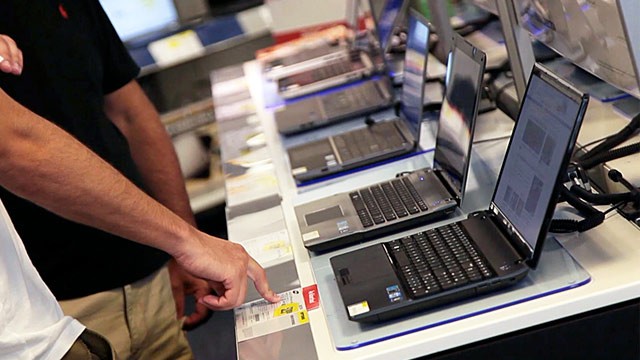Laptops are brilliant in terms of portability; however, they are ultimately much less flexible than a desktop computer and once you made your choice, you’re stuck with it.
So, you could simply decide on your budget and buy whatever model is currently selling best from a popular name like Lenovo, Dell, or HP. But what if, upon purchasing it, you find out that it doesn’t do all the things you were hoping it would?
For example, you can’t just replace the keyboard with a more suitable one, and although you can swap out other parts such as your RAM or your hard drive, making these changes is nowhere near as easy as it is on a desktop computer.
Due to this, it’s important that you carefully consider what type of laptop you want before you run out and buy one.
In this guide, we’re going to explain the 6 most important factors to consider when shopping for laptops.
Laptop and Screen Size
When it comes to size, there’s not really anything that’s better than others. It largely depends on your own budget and personal preference.
Laptops are usually classed depending by their screen’s diagonal size in inches, which is because the size of a laptop’s screen will also determine the size of the actual computer itself.
So, keep this in mind when shopping for laptops and remember that a massive 18-inch screen might be perfect for gaming, but it won’t be well-suited for doing lots of typing or being carried around all day.
Keyboard
Because of the physical limitations of a laptop’s size, their keyboards tend to be much more varied than what’s typically found on a desktop keyboard. For example, most laptops don’t have the physical space on them for a separate numeric pad.
So, if you rely on certain keys to navigate, make sure that the laptop you choose has them before running to the checkout line and buying it.
Read more about what to look for in a keyboard here.
Touch Pad
A laptop’s touch pad is the most common way that you’re going to interact with it. Therefore, it’s important to choose a laptop with a good touchpad.
Many newer laptop touchpads have buttons that are integrated directly into the pad itself. This can be useful in some situations, but on lower quality models, or if you’re not very dexterous, it often means that your cursor will be jumping all over the screen when you’re simply trying to click on something.
Connectivity
Laptops generally have far fewer connection ports than what’s found on desktop models. Due to this, it’s important that you carefully consider what you plan on plugging into your laptop.
It’s also important to consider what video outputs you want on your laptop. So, if you plan on plugging your laptop into a TV or monitor at any point, you’re going to want to make sure to choose a laptop with an HDMI port.
Check out https://www.orphanlaptops.com/ for more information and tips on buying laptops.
Performance
In terms of performance, you’re going to want to consider how much RAM a laptop has, as well as what kind of processor you need.
4 GB laptops are sufficient for most applications, without having to worry about how much memory you’re using up. However, if you plan on doing any sort of heavy-duty video editing, you might want something with 8 or more GB.
You should also aim for a laptop with at least an Intel Core i3 processor, which will work great for any sort of internet browsing and office-type work. However, a Core i5 might be needed if you plan on doing tasks such as encoding video or dealing with larger images.
Finally, a Core i7 processor might be a bit more expensive, but they are extremely fast and worth thinking about if you’re looking for the best performance possible. It is best to look for guides on processors online to get more information.
Battery
A laptop’s battery life is another extremely important factor to consider when shopping around, especially if you plan on traveling with your laptop a lot.
Generally, smaller, lighter laptops offer better battery life than larger models because they have smaller screens and lower voltage processors to power.
That being said, we recommend carefully reading reviews about the laptop you’re considering to check and see what sort of battery life you can expect from it.




